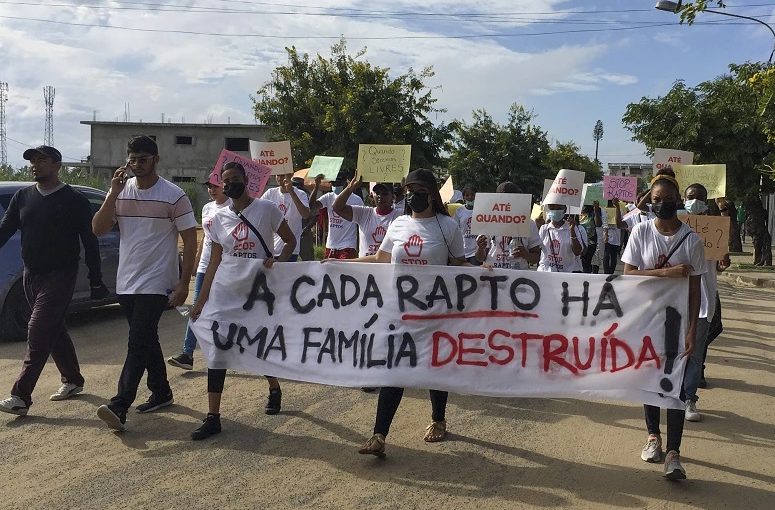Mozambique sets annual growth target at 5.5% in five-year plan
Mozambique: Kidnappings involve $33M since 2014

FILE - For illustration purposes only. [File photo: Lusa]
Mozambican authorities estimate that kidnapping in Mozambique has generated at least US$33 million in money laundering activities since 2014.
The figure is contained in the Strategic Analysis Report (RAE) prepared by the Financial Intelligence Office of Mozambique (GIFiM) based on “communications and information ” in that office of the Ministry of Economy and Finance and “information/intelligence reports” from the period from January, 2014, to May, 2024.
The document analysed money laundering “resulting from the crimes of kidnapping/abduction”, through “the introduction of funds into the financial system using cash deposits in instalments/splits”.
These payments were concealed in accounts held by the suspects and their relatives and/or companies controlled by them, followed by illicit export of capital under various pretexts with a view to hiding its criminal origin, the report states.
This practice, the GIFiM report adds, involves “national or acquired nationality” citizens in “the practice of the crime of kidnapping/kidnapping followed by ransom demands (extortion), in what has commonly been called the ‘kidnapping industry'”.
It adds that the “illicit export of capital” resulting from ransoms “takes place under various pretexts with a view to hiding their criminal origin, resorting to trade-based money laundering”.
These practices were identified in “high risk locations identified in the Republic of Mozambique, mainly the city of Maputo, the provinces of Maputo, Manica, Sofala and, Nampula and the Republic of South Africa”.
Money laundering involves “the use of shell or fictitious companies and some legitimately constituted companies, potentially with the involvement of some professionals, such as lawyers, bank employees, notwithstanding [the involvement of] others”, it reads.
“From the analysis carried out,” the document continues, “it was found that there was evidence to suspect the involvement of some professionals, including members of the Defence and Security Forces, lawyers, bank employees, supposed businessmen and magistrates”, among others.
“It was found that individuals suspected of involvement in kidnapping/abduction operations used bank accounts belonging to their closest family members or company(ies) controlled by them or their family members, to introduce funds resulting from ransom demands (extortion ) of the victims, mostly in cash, disguising them as funds resulting from business/commercial activities,” the report alleges.
At the same time, the report identified that “for the purposes of concealment, several companies controlled by individuals and/or groups of suspected individuals were created, and several bank accounts were opened in several financial entities in the Republic of Mozambique, in their name, which through multiple cash deposits introduced funds into the national financial system, as well as carrying out complex bank transfers between themselves and other entities”.
GIFiM identified amounts of “more than 2.1 billion meticais equivalent to more than US$33 million”, while flagging “suspicions of the practice of acts of money laundering with precedent/related crimes, acts of kidnapping/abduction, followed by ransom demand, extortion, false imprisonment, illegal possession of weapons, moral coercion, physical coercion, homicides/murders, association to delinquent/criminal, tax infractions, illicit export of capital, fraud, falsification of documents, financing of terrorism” .
The document highlights that “the current predominance and incidence on domestic/national victims could lead to the development and institutionalisation of ‘kidnapping industry’ starting to include foreign victims, which would undoubtedly lead to an increase in extortion amounts”.
The Mozambican police had up until March of this year registered a total of 185 cases of kidnappings and detained at least 288 people on suspicion of involvement in this type of crime since 2011, the Minister of the Interior, Pascoal Ronda, said in March.












Leave a Reply
Be the First to Comment!
You must be logged in to post a comment.
You must be logged in to post a comment.